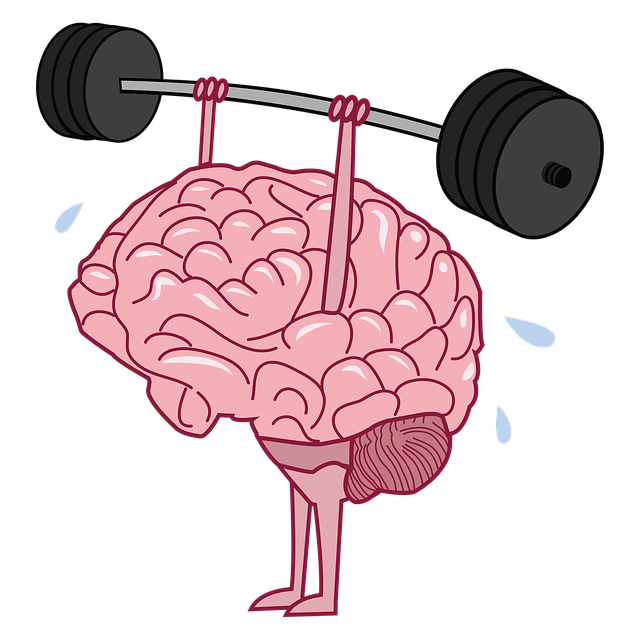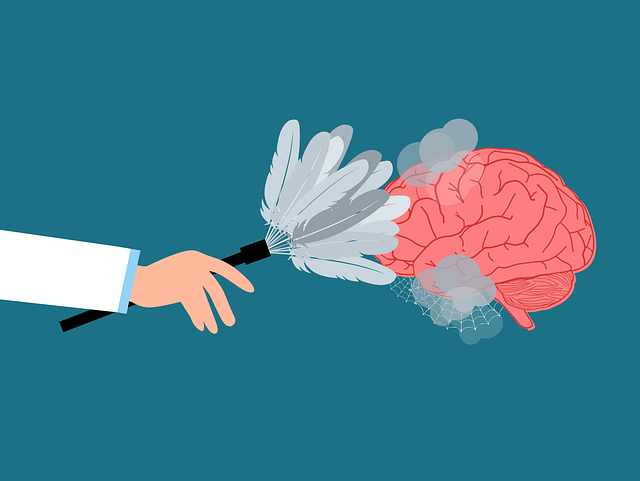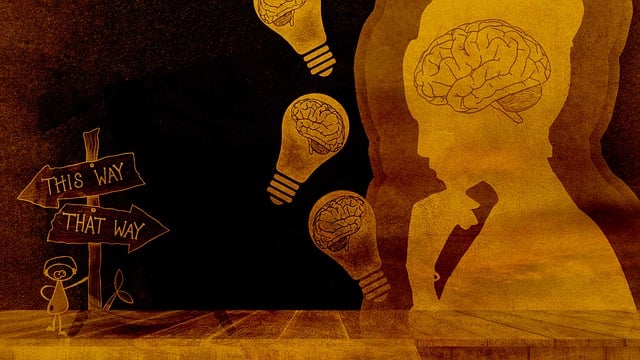TL;DR:
Nurturing emotional intelligence in young children involves teaching effective mood regulation strategies like Exposure and Response Prevention (ERP), an evidence-backed therapy. ERP combines exposure therapy and response prevention to gradually expose kids to distressing situations, helping them learn healthier reaction patterns and build emotional resilience. This approach, supported by mental wellness coaching programs, promotes self-awareness, empathy, and coping skills, empowering children to manage their emotions effectively and enhancing overall mental wellness. By combining therapy with holistic practices like mindfulness and physical activity, parents and caregivers can help young patients develop emotional control and navigate life's challenges with greater strength.
Mood regulation is a vital skill for young children to navigate their emotional landscape. This article explores effective strategies to help kids manage their moods, focusing on emotional intelligence development in early years. We delve into evidence-based therapies like Exposure and Response Prevention (ERP), offering powerful tools for emotion management. Additionally, we provide practical tips and emphasize the role of play and conversation in building resilience. Understanding and regulating emotions early can set the foundation for a child’s long-term mental well-being.
- Understanding Mood Regulation: Unraveling Emotional Intelligence in Young Children
- Exposure and Response Prevention (ERP): A Powerful Therapy Approach for Managing Emotions
- Practical Strategies: Tools to Help Children Cope with Difficult Feelings
- Building Resilience: Nurturing Emotional Awareness Through Play and Conversation
Understanding Mood Regulation: Unraveling Emotional Intelligence in Young Children

Understanding mood regulation is a crucial aspect of nurturing emotional intelligence in young children. This involves equipping them with effective strategies to manage and express their emotions healthily. One powerful approach, backed by therapy for young children, is Exposure and Response Prevention (ERP). ERP encourages children to confront triggers that evoke negative moods or behaviors, helping them learn to manage these responses over time. By gradually exposing them to distressing situations and teaching alternative ways to react, ERP fosters resilience building and promotes emotional healing processes.
Additionally, mental wellness coaching programs can play a significant role in developing emotional intelligence by offering tailored support. These programs focus on nurturing self-awareness, empathy, and coping skills, enabling children to navigate their emotions effectively. Through these interventions, young individuals gain valuable insights into their emotional reactions, enhancing their ability to regulate moods and fostering overall mental wellness.
Exposure and Response Prevention (ERP): A Powerful Therapy Approach for Managing Emotions

Exposure and Response Prevention (ERP) is a highly effective therapy approach for managing emotions, particularly beneficial for young children struggling with anxiety or mood disorders. This evidence-based method involves gradually exposing individuals to situations that trigger negative responses while preventing them from engaging in habitual coping mechanisms. By facing their fears in a safe, controlled environment, children learn to modify their emotional reactions and develop healthier ways of responding.
ERP goes beyond traditional therapy by combining exposure therapy with response prevention techniques. It encourages individuals to challenge their beliefs and thoughts associated with anxiety or distressing emotions. Through various communication strategies and compassion cultivation practices, children are taught to acknowledge their feelings without judgment, fostering a sense of self-compassion that is vital for depression prevention. ERP has proven successful in treating specific phobias, social anxiety, and obsessive-compulsive disorders, offering young patients the tools they need to navigate life’s challenges with greater emotional resilience.
Practical Strategies: Tools to Help Children Cope with Difficult Feelings

Children often struggle to express and manage their emotions effectively, especially when faced with difficult feelings like anger, sadness, or anxiety. Practical strategies can help them develop healthy coping mechanisms early on. One such approach is Exposure and Response Prevention (ERP), a behavioral therapy that gradually exposes children to distressing situations while teaching them alternative behaviors to prevent a full-blown emotional response. For instance, a child fearful of public speaking might practice delivering a speech in front of their family until the fear diminishes.
Incorporating self-care routine development for better mental health into a child’s life is another powerful tool. This can include simple practices like deep breathing exercises, mindful activities, or engaging in hobbies that bring joy and relaxation. Additionally, promoting regular physical activity, adequate sleep, and balanced nutrition supports overall well-being, thereby enhancing mood management. By teaching children these skills, parents and caregivers empower them to navigate their emotions more effectively and build resilience against burnout prevention.
Building Resilience: Nurturing Emotional Awareness Through Play and Conversation

Building resilience is a crucial aspect of mood regulation, especially for young children. Through play and conversation, emotional awareness can be nurtured, enabling kids to understand and manage their feelings effectively. Therapy techniques like Exposure and Response Prevention (ERP) can be integrated into these interactions, helping children face and overcome fears or anxieties in a safe environment. By combining ERP with mindful communication strategies, parents and healthcare providers can foster a sense of control and emotional agility in young minds.
Mindfulness meditation, as a complementary practice, encourages present-moment awareness, which is beneficial for regulating emotions. Cultural competency training for healthcare providers ensures that these interventions are tailored to suit diverse backgrounds, making them more inclusive and effective. Encouraging open dialogue and using playful approaches make therapy accessible and engaging for young children, thereby strengthening their emotional resilience.
In conclusion, understanding mood regulation is paramount in fostering healthy emotional development in young children. By combining therapeutic approaches like Exposure and Response Prevention (ERP) with practical strategies, parents and caregivers can effectively support children in managing their emotions. ERP, in particular, has proven to be a powerful therapy for young children, helping them confront and cope with difficult feelings. Additionally, nurturing emotional awareness through play and conversation builds resilience, providing kids with essential tools to navigate life’s challenges. These integrated methods not only enhance emotional intelligence but also ensure a brighter and more resilient future for our youngest minds.














